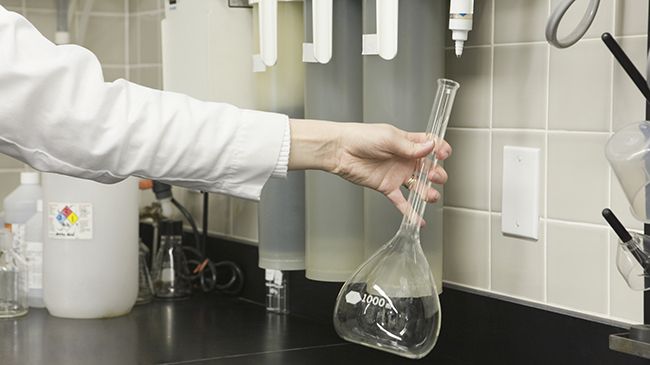
Can you guess what the first ingredient in most hair products is? Water!
If you have considered these questions in relation to your own personal hair care regimen, you have come to the right place. Let’s dive in!
Reading the labels
In the cosmetic industry there are certain guidelines that must be followed to keep communication clear between brands and consumers. It is a requirement to use the common names of ingredients. For example, an appropriate label would be fragrance rather than parfum. Other alternatives will not be accepted as substitutes. However, “FDA does not object to their use in parentheses following the common name in English or the official language for that region. For examples, water (aqua”>, honey (mel”>, or sweet almond (Prunus amygdalus dulcis“> oil.”
In other words “water is water,” but if a product company has gone to greater lengths to disclose specific details about what type of water it contains, they must believe it to be beneficial to the consumer regarding its topical effect or its marketing effect. Therefore it is worth taking a closer look at their benefits.
Distilled water
This process uses evaporation and condensation techniques to remove impurities. When distilled correctly, the water should contain only oxygen and hydrogen molecules, have a pH level of 7, and contain no other minerals, contaminants, or gases. According to Ehow, distilled water is considered purer than deionized water.
Deionized water
Deionized literally means to remove ions from a solution using an ion-exchange process. These ions include such things as copper, calcium, sodium, bromide, and other minerals. Ehow says that water is placed in a negatively charged resin. The resin attracts minerals, removing them from the water. The use of this water is vast. Common uses include medicine, making electronics, and other manufactured products. Although the water has been purified, it does not have any affect upon bacteria or other viruses.
Purified water
A very broad term that consumers often interpret as the purest form of water. Purified water denotes a process by which contaminants and minerals have been removed from a source of water. Tap water for example is considered purified, as it has gone through a water treatment process.
Coconut water
While the benefits of coconut oil and water on the hair are staggering, there is limited research that substantiates coconut water being a preferred water contributor to a hair product. In fact, you typically see another form of water in conjunction with coconut water in common cosmetic products. Nonetheless coconut’s benefits include taming frizz, increasing blood circulation, promoting hair growth, and relief of infection and fungal infections.
Hard water
Hard water is water with high mineral content that over time will leave traces of film on the hair; similar to calcium deposits left on a showerhead, resulting in dry, brittle, heavy hair. Soft water on the other hand has fewer minerals but can leave the hair feeling mushy and flat.
Why does it matter?
Hair holds a negative charge
Hard metal ions found in water are positively charged. Positive and negative charges are attracted to one another. Therefore the hard water’s metal ions will attach itself to the most negative charged areas of the hair, which happens to be the damaged areas. This will affect your shampoo and conditioning treatments, as the minerals in the water will create a barrier between the hair and the product. For this reason product companies have tried to add purer forms of water to their products to prevent this effect.
Cosmetic chemists have your back
But there is one thing we must not forget. If your shampoo is made up of one of the purified forms of water, yet the water in your home is mineralized, then that soft water-based product will not do as much good. Cosmetic chemists know the perils of soft and hard water. Many have taken the consumers’ home water source into account while making a product that can perform well regardless of the water’s purity.
Take it from Thomas Lehman, a representative of Mansfield-King Manufacturing. “From a cosmetic chemist perspective, our water is bottled water quality. We do that at Mansfield because ‘bottled water’ tends to produce consistent and predictable results. If we were to add something of ‘higher purity’, to make a ‘better product,’ we need to make sure the water will not impact the performance once it leaves us. Our products are consistent from batch to batch.”
Before you buy a water treatment kit…
Before running to Home Depot to purchase that expensive water treatment kit for your entire home, it may be best to go with a product that works well with your hair, in your unique environment, as your geographic location determines the mineral content in your water. Companies that formulate quality products will keep in mind the types of water the average consumer has within their home and will tailor the products around that.
Expert recommendation
According to Lehman, there is a time to look closer at your water sources. “If you are around hard water every now and then, it will not have a major impact on your hair, but consistent use over a long period of time will make an impact. It can make your hair feel dry. Therefore if you have a consistent challenge within your beauty care regimen and have done all you can to remedy the problem, a need for softer water may be something you can look into.”

